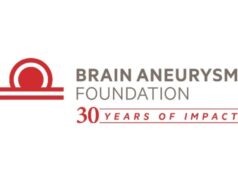 The National Institutes of Health (NIH) has launched the first phase of the Neuromod Prize—a US$9.8 million competition to accelerate the development of neuromodulation therapies. The competition seeks scientists, engineers and clinicians to submit novel concepts and clinical development plans to demonstrate solutions for precisely stimulating the peripheral nervous system to treat disease and improve human health, an NIH press release says.
The National Institutes of Health (NIH) has launched the first phase of the Neuromod Prize—a US$9.8 million competition to accelerate the development of neuromodulation therapies. The competition seeks scientists, engineers and clinicians to submit novel concepts and clinical development plans to demonstrate solutions for precisely stimulating the peripheral nervous system to treat disease and improve human health, an NIH press release says.
The first phase of the competition will award up to US$800,000. The NIH also plans to launch a second phase awarding up to US$4 million and a third phase awarding up to US$5 million, subject to the availability of funds. Details of the requirements and registration for phases two and three are expected to be announced at a future time, with phase one being the only one to launch at this time.
The Neuromod Prize is part of the Stimulating Peripheral Activity to Relieve Conditions (SPARC) programme from the NIH Common Fund. The release notes that SPARC has made significant progress elevating neuromodulation as a therapeutic approach, closing fundamental knowledge gaps, and offering tools that enable open science and innovation. With this competition, the NIH hopes to bridge the gap between early-stage research and clinical use for solutions capable of independently targeting multiple functions involving the internal organs of the body.
“Through the Neuromod Prize, we are asking potential solvers to use the foundational knowledge and technologies that have come out of our SPARC programme, and take it to the next level with their innovative concepts and ideas,” said James M Anderson, director of the Division of Program Coordination, Planning, and Strategic Initiatives, which oversees the NIH Common Fund. “This competition is an exciting opportunity to come up with tangible plans for harnessing the power of the body’s electrical system to help transform treatments for millions of people living with chronic or acute illnesses.”
Phase one participants will submit concept papers describing their proposed therapeutic approaches and their plans for conducting proof-of-concept studies, rationales for therapeutic use, and expectations for clinical impact. To learn more, potential participants can join a virtual information session on 7 February. Submissions through an online portal are due by 28 April.
A judging panel will select up to eight quarterfinalists to receive a share of the up to US$800,000 first-phase prize pool. Phase one quarterfinalists will be exclusively invited to participate in the second phase, anticipated to take place starting in 2022, which will translate the winning ideas into preclinical studies, the NIH release states. Semifinalist winners from the second phase will be eligible to compete in the final phase—expected to launch in 2023—moving their preclinical work into advanced translational and clinical studies as a critical step towards the regulatory approvals needed to bring new neuromodulation therapies to market.









